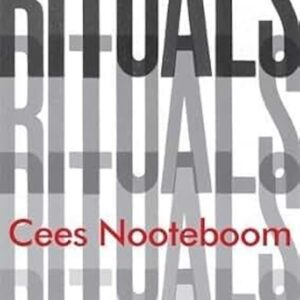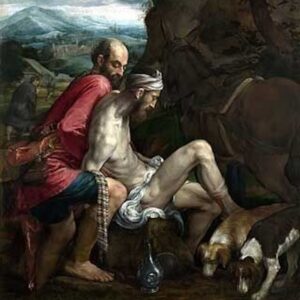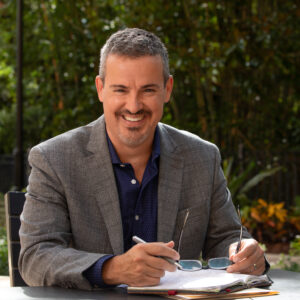In July 2024, Pope Francis issued an extraordinary 5000-word Pastoral Letter titled “On the Role of Literature in Formation.” At first, he says, he’d thought of addressing it to people engaged in pastoral work, including of course priests; but then he realized that his audience should be all Christians—because his subject was “the value of reading novels and poems as part of one’s path to personal maturity.”
As a young man, he reminds us, he’d taught literature at a Jesuit high school—so his sense of literature’s value is nothing new. But more and more, he has developed the conviction that through reading “we become more sensitive to the experiences of others. We step out of ourselves to enter into their lives.” For instance, he writes,
“When we read a story, thanks to the descriptive powers of the author, each of us can see before our eyes the weeping of an abandoned girl, an elderly woman pulling the covers over her sleeping grandson, the struggles of a shopkeeper trying to eke out a living, the shame of one who bears the brunt of constant criticism, the boy who takes refuge in dreams as his only escape from a wretched and violent life.”
So, then, “reading prepares us to understand and thus deal with various situations that arise in life.” In fact, in a formulation I especially treasure, he declares that “Literature is life, conscious of itself.”
Expanding on this insight, Francis quotes Proust, from the first volume of Remembrance of Things Past (Swann’s Way), where Proust writes that novels unleash in us “in the space of an hour, all the possible joys and misfortunes that, in life, it would take us entire years to know even slightly.”
For another dimension of what literature does for us, Francis draws on a sophisticated literary theory which gives readers an active role in reading:
“Readers in some sense rewrite a text, enlarging its scope through their imagination, creating a whole world by bringing into play their skills, their memory, their dreams and their personal history, with all its drama and symbolism. In this way, what emerges is a text quite different from the one the author intended to write. A literary work is thus a living and ever-fruitful text, always capable of speaking in different ways and producing an original synthesis on the part of each of its readers.”
Francis also quotes Borges saying that in reading, we hear “another person’s voice.” Pope Francis continues: “This is a definition of literature that I like very much: listening to another person’s voice. We must never forget how dangerous it is to stop listening to the voice of other people when they challenge us! We immediately fall into self-isolation; we enter into a kind of ‘spiritual deafness.’”
Yes, the spiritual. It’s natural that the spiritual dimension of reading is one that greatly interests the Pope. So, for instance, he quotes twentieth century theologian Karl Rahner on the words of poetry as being like “gates into infinity.” Not that poetry itself contains the infinite; only the word of God does that. But “the poetic word calls upon the word of God.” Pope Francis elaborates Rahner’s point: “For Christians, the Word is God, and all our human words bear traces of an intrinsic longing for God, a tending towards that Word.”
As for priestly formation, Francis says that “Literature…offers a training in discernment, honing the capacity of the future priest to gain insight into his own interiority and into the world around him. Reading thus becomes the ‘path’ leading him to the truth of his own being and the occasion for a process of spiritual discernment.”
And for all of us Christians in our dedication to service, we mustn’t, Francis insists, focus on getting tasks completed and out of the way expeditiously. Rather, “as Jesus reminds us in the parable of the sower, the seed needs to fall on deep soil to ripen fruitfully over time, without being choked by rocky soil or thorns (Mt 13:18-23).” The rocky soil and thorns are our obsession with efficiency, with getting the job done as quickly as possible. Instead, “We desperately need to counterbalance this inevitable temptation to a frenetic and uncritical lifestyle by stepping back, slowing down, taking time to look and listen.” And the Pope’s suggestion for how to do this: “This can happen when a person simply stops to read a book.”
So, then, when you find your life getting frantic, just pull a novel from your bookshelves—and sit down to read it. What congenial advice for readers of the “Close Reading” blog.
Peggy Rosenthal has a PhD in English Literature. Her first published book was Words and Values, a close reading of popular language. Since then she has published widely on the spirituality of poetry, in periodicals such as America, The Christian Century, and Image, and in books that can be found here.





